ALT-ALTON: In Conversation with Baz Luhrmann
Starring as “the architect of rock and roll” himself, Little Richard in Baz Luhrmann’s upcoming blockbuster hit, Elvis, industry darling Alton Mason goes alt-rock in the season’s most daring looks

This feature appears in VMAN 48, now available for purchase.
In conversation with Baz Luhrmann, Alton Mason details how he landed the coveted role of Little Richard, his master plan to inspire the next generation of multi-hyphenates, and the influences fueling his forthcoming foray into music.
Baz Luhrmann: Alton, do you remember how we met because we didn’t meet in this traditional way. I was sitting in a chair and I heard a voice. That’s how I’ll start the story and you tell the rest.
Alton Mason: So you’re sitting in the hair makeup chair, and I walk in and they’re like, “Hi, how are you doing?” I’m like, “I’m doing good. How are you doing?” And I remember you just looked at me and I looked at you and I said, “I like your hair.” And you were like, “I like your hair.” (Laughs)
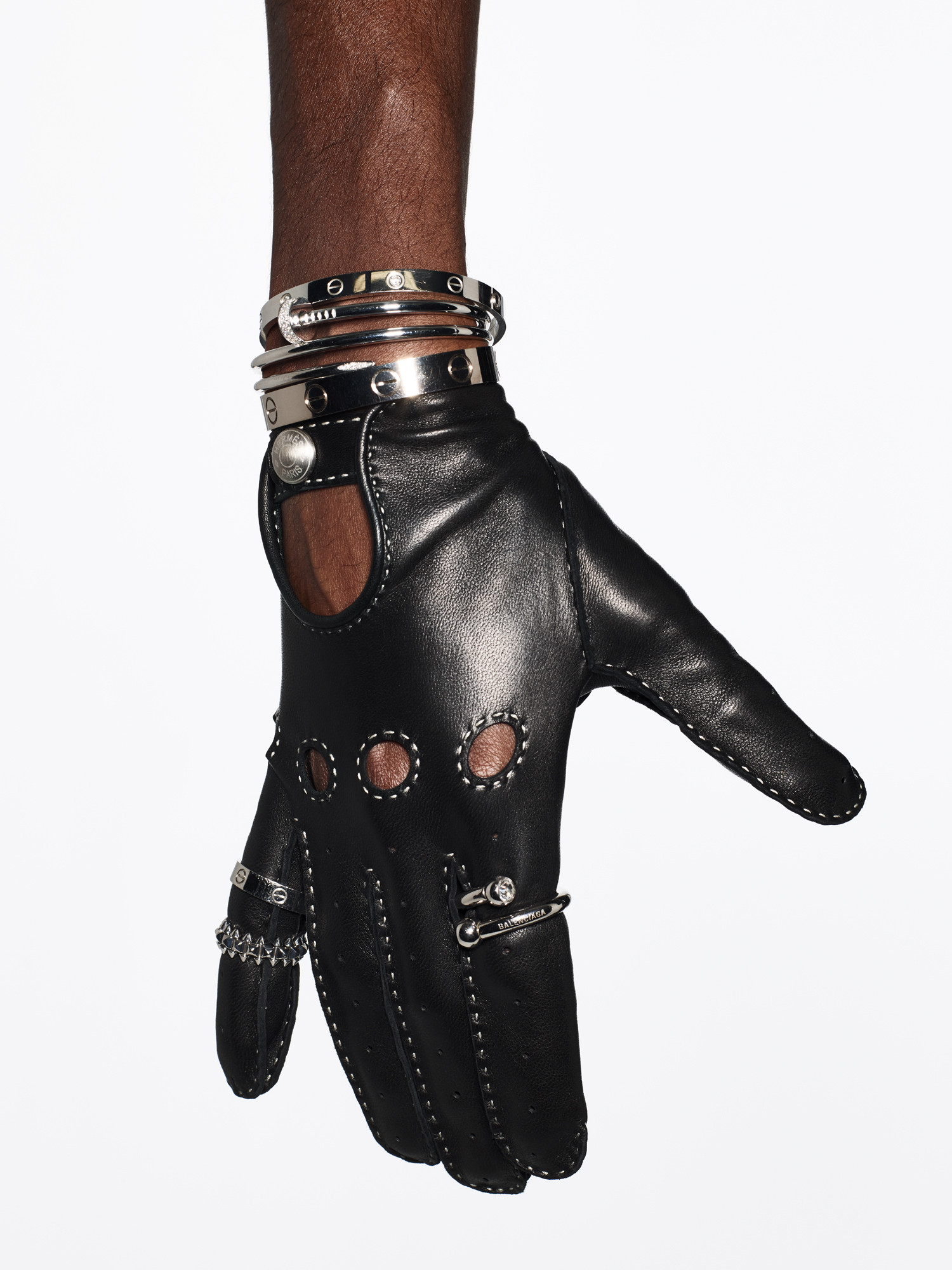
BL: (Laughs) Yeah, believe me, I was aware of you. You weren’t aware of me. To give context we were at the GQ Awards. Alton was getting the Supermodel of the Year award. We just got talking in the makeup chairs and I saw you later on stage. And then I definitely saw you on the dance floor, later [at the after-party].
AM: Yes, so I wasn’t familiar with you. But I was always familiar with your work. I remember after my acceptance speech, you received your award. And since we were in your hometown, you could feel the energy radiating off of you. What you were saying was very heartfelt, especially what was going on in Australia at the time with the fires. But then, your [directing] reel was playing, and I was like, “That’s who made this? That’s who I was just talking to?” Then at the after-party, I was on the dance floor, and I was just vibing, grooving, dancing. I remember turning around and my mom was running up to me.
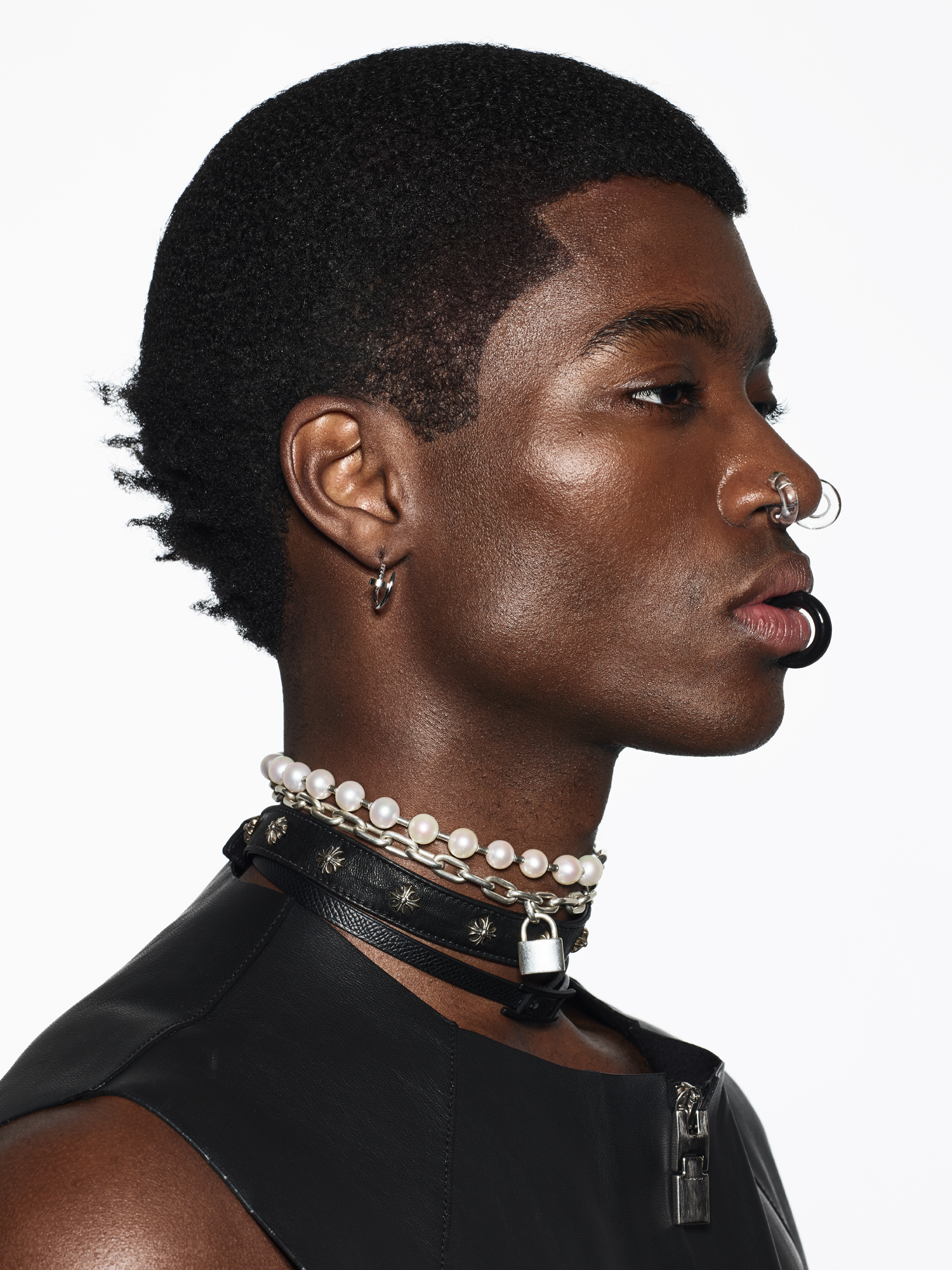
And I’m like, “Mom, what’s going on?’ She’s like, “Baz wants to talk to you.” After that, you came up and said to me, “That was a beautiful speech. nIt’s very genuine. And you could tell it came from your heart.” I remember I looked behind you and I saw Austin [Butler] and Olivia [DeJonge] looking in our direction as well. Then you asked, “You’re a model, but do you do anything else? Where are you from? What’s your background?” And I remember I was like, “Well, I’m just starting to really dive into music. I’m a descendant of Mahalia Jackson so music has always really been in our family. And I’m tapping into that.” And with your eyebrows raised you said, “Mahalia Jackson?”
BL: By then, there was only one thing I was thinking: Little Richard! I didn’t even talk about it that night. We met the next day with your mom and your lovely family in this little 1930s cinema and it was only meant to be a catch up, but we spent so much time together.
AM: And you were supposed to fly out the night before, Baz.
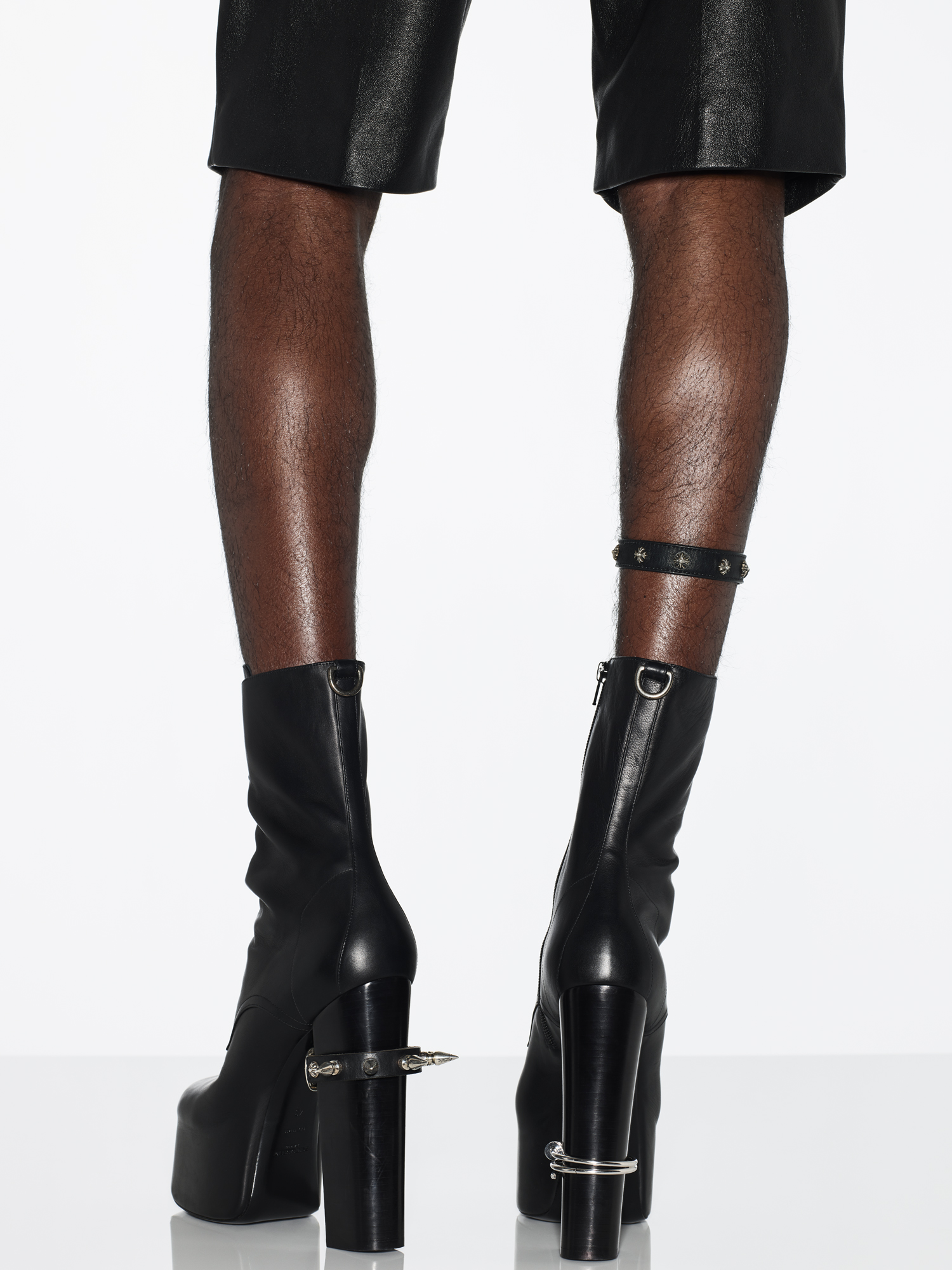
BL: Yes. Well, it was quite the night, so we didn’t really make it and we all decided to stay. You’re known for modeling which— I mean you were getting Model of the Year Award—so that says everything. But from the moment I met you I was aware of two things: you danced and you not only loved music but you made music. Talk a little bit about your dad and the Mahalia connection. I think he’s from Shreveport, which I think features very much in Elvis’ life.
AM: Yes, absolutely. It’s actually crazy how my parents are so influential with the way I was raised and how it correlates to the Elvis film. On my mom’s side, we have Mahalia Jackson, on my dad’s side, he’s from Shreveport, Louisiana. So we have deep, deep, deep roots in Louisiana. And before I even flew out to Australia to come meet you, I spent a lot of time in the South, really getting familiar with the energy and the essences.
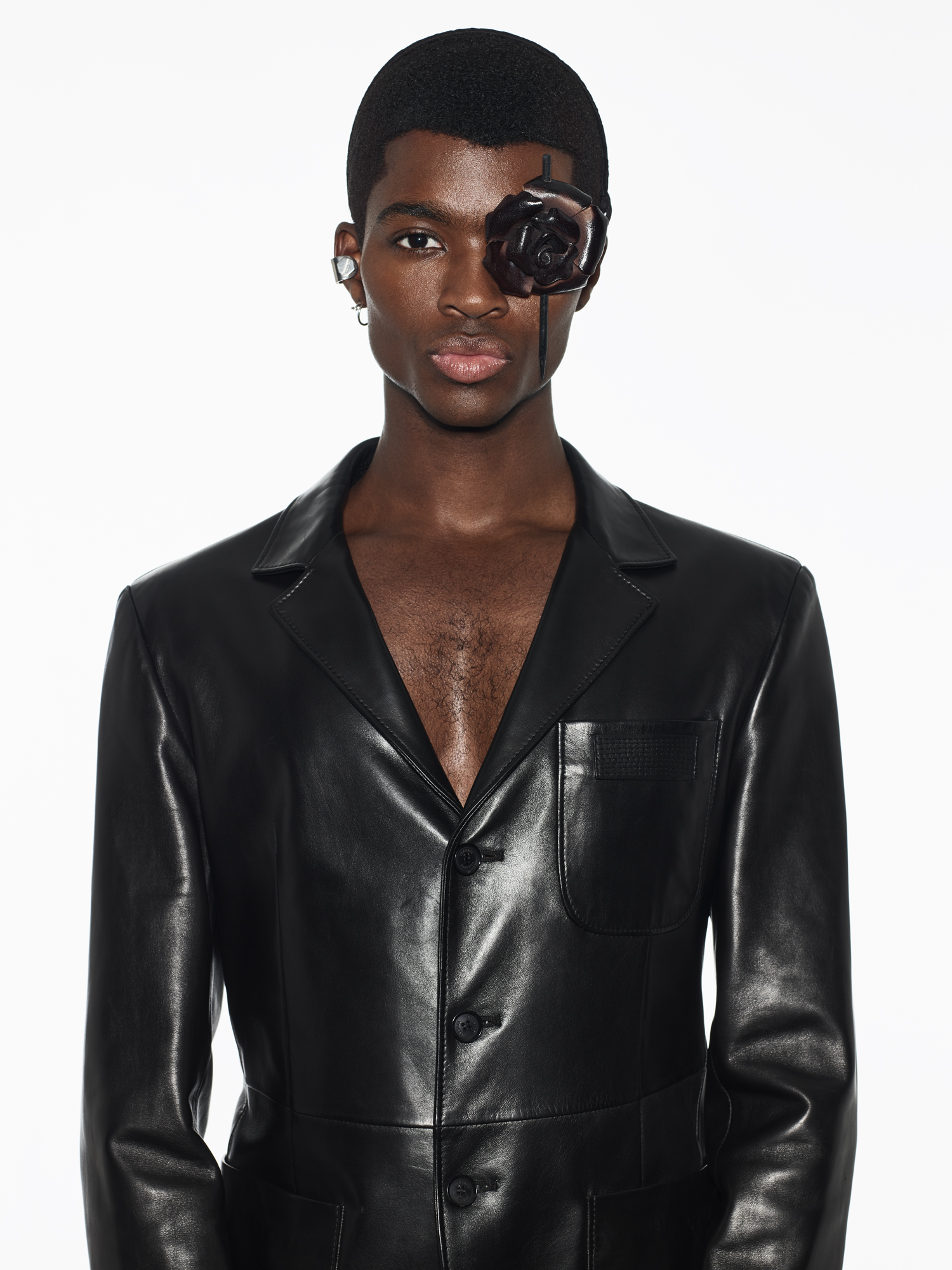
I spent time comparing and contrasting and learning, rebuilding and destroying and surrendering. Then coming to Australia and having to quarantine was like me cleaning the slate in my little cube. And then I remember traveling to Gold Coast and seeing you and it was like paradise there.
BL: You know something I remember about that journey when you arrived. I don’t want to say too much about the film right now. But one thing that’s true, is that there’s a lot of generalization nwhen you start to say the word Elvis because he became somewhat like wallpaper. But when you dig into Elvis, the person and you look at his journey, there’s so much there to unpack. From the start we had a really amazing cast. We had Yola playing Sister Rosetta Tharpe, who as you know, discovered Little Richard. Gary Clark Jr. playing Big Boy Crudup, and Kelvin Harris Jr. as the amazing B.B. King.
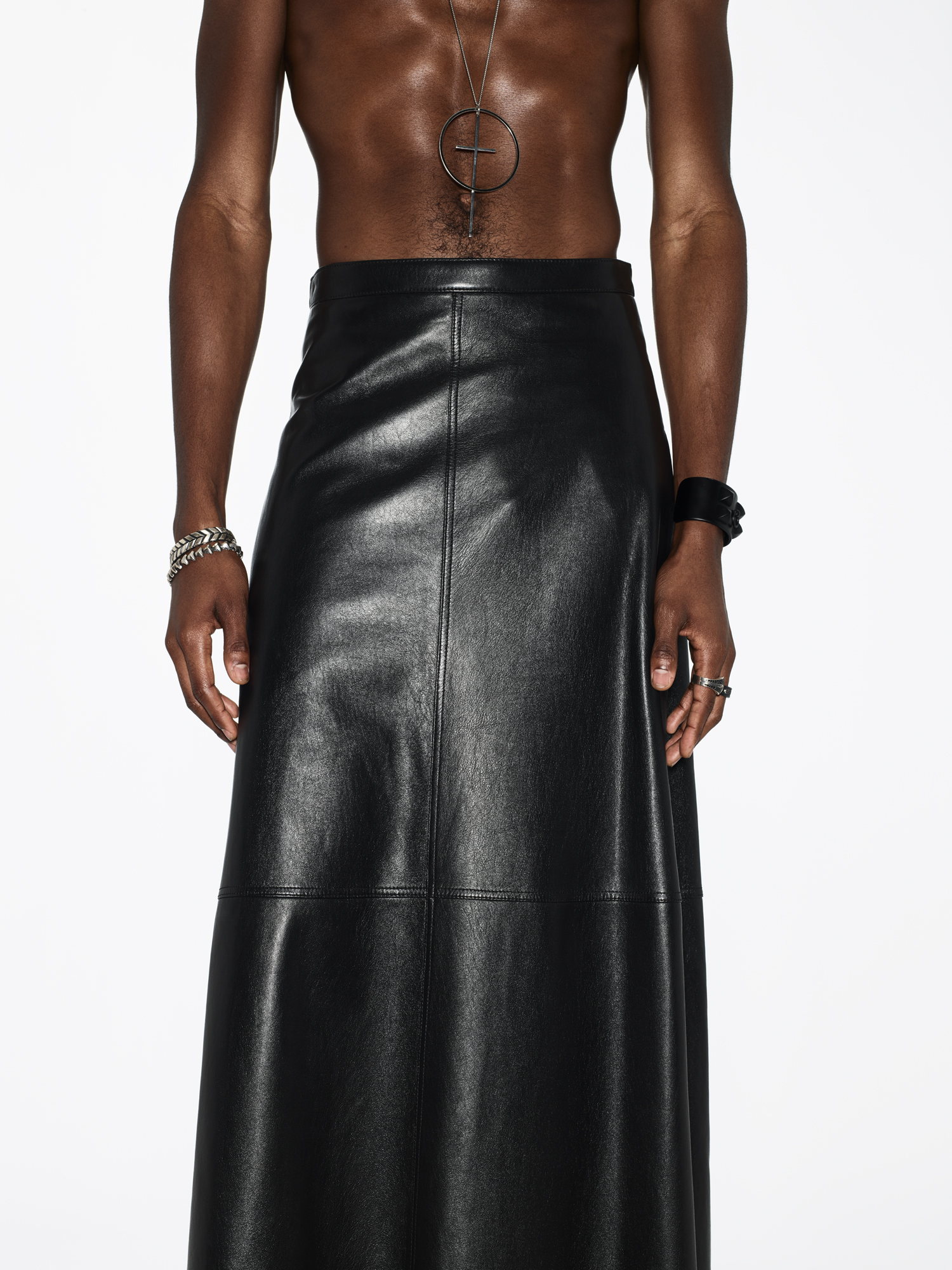
And we’re all out to dinner one night, and you were there—and this is the story I tell to everyone about you. You were there along with these really significant artists. But I remember, there were a bunch of young surfer guys on the Gold Coast, and they’re all pointing and one came over and said, “Hey, mate! Are you Alton Mason? What are you doing here?” I’m thinking like all of the firepower in that room and you stood out, but it showed the power of fashion, actually. It just shows that through your movement in modeling and the way you’ve expressed yourself, you’ve touched many. You’ve never been a clothes hanger, you illuminate clothes. But these young surfer dudes knew you from that kind of work. Can you talk a little bit about your attitude to modeling? To fashion? You had really important and profound relationships in fashion, friends, and fairy godmothers like Naomi Campbell, and of course, you were close to Virgil, just talk a little bit about that journey for you.
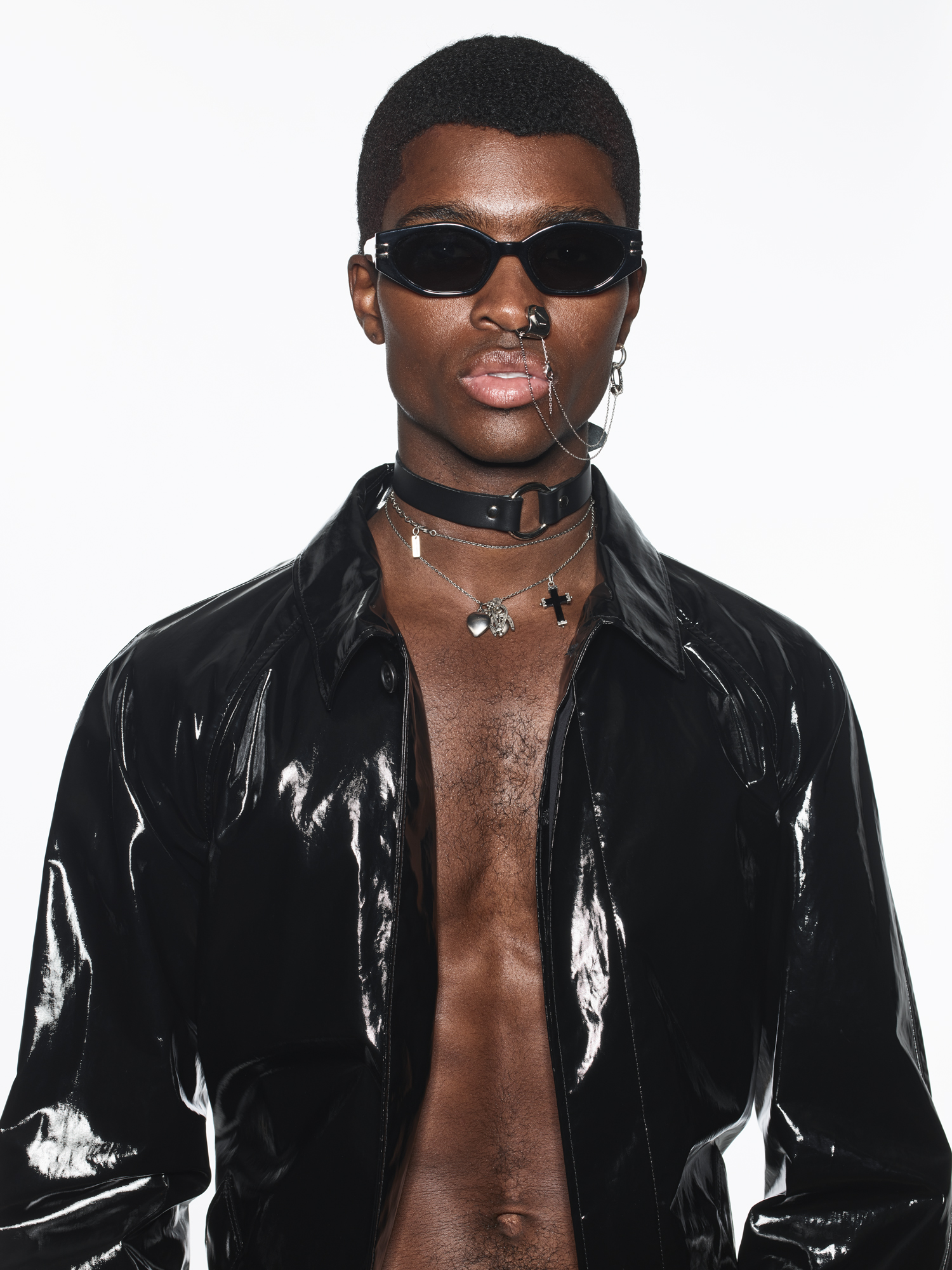
AM: Well, honestly, it’s really profound because fashion has always been a passion of mine, subconsciously. I’ve gotten to really dive into so many different cultures and see their aesthetics, which I always applied to myself. My dad played basketball overseas, we were always traveling to places like Greece, Amsterdam, Belgium, Czech Republic, so I kept my imagination and applied that to fashion. Also growing up in theater school, we were always in the theater’s fashion closet going crazy and being creative. My teacher, Miss Flack would allow us to wear what we wanted in the class, so that also influenced my style, which encouraged freedom of artistic expression for me. I think what made fashion fun for me was being fearless. And then [fashion] was something that I chose subconsciously or maybe it chose me. Like I said, not on purpose, but on purpose, I guess. Either way, when stepping into this industry, I wanted to be something that I didn’t see enough of and something I thought the industry needed. I wanted to break the mold and apply what I learned from my dance and gymnastics background to fashion. And in applying that when I’m in front of the camera, it doesn’t really become about selling the clothes, it’s so much more.
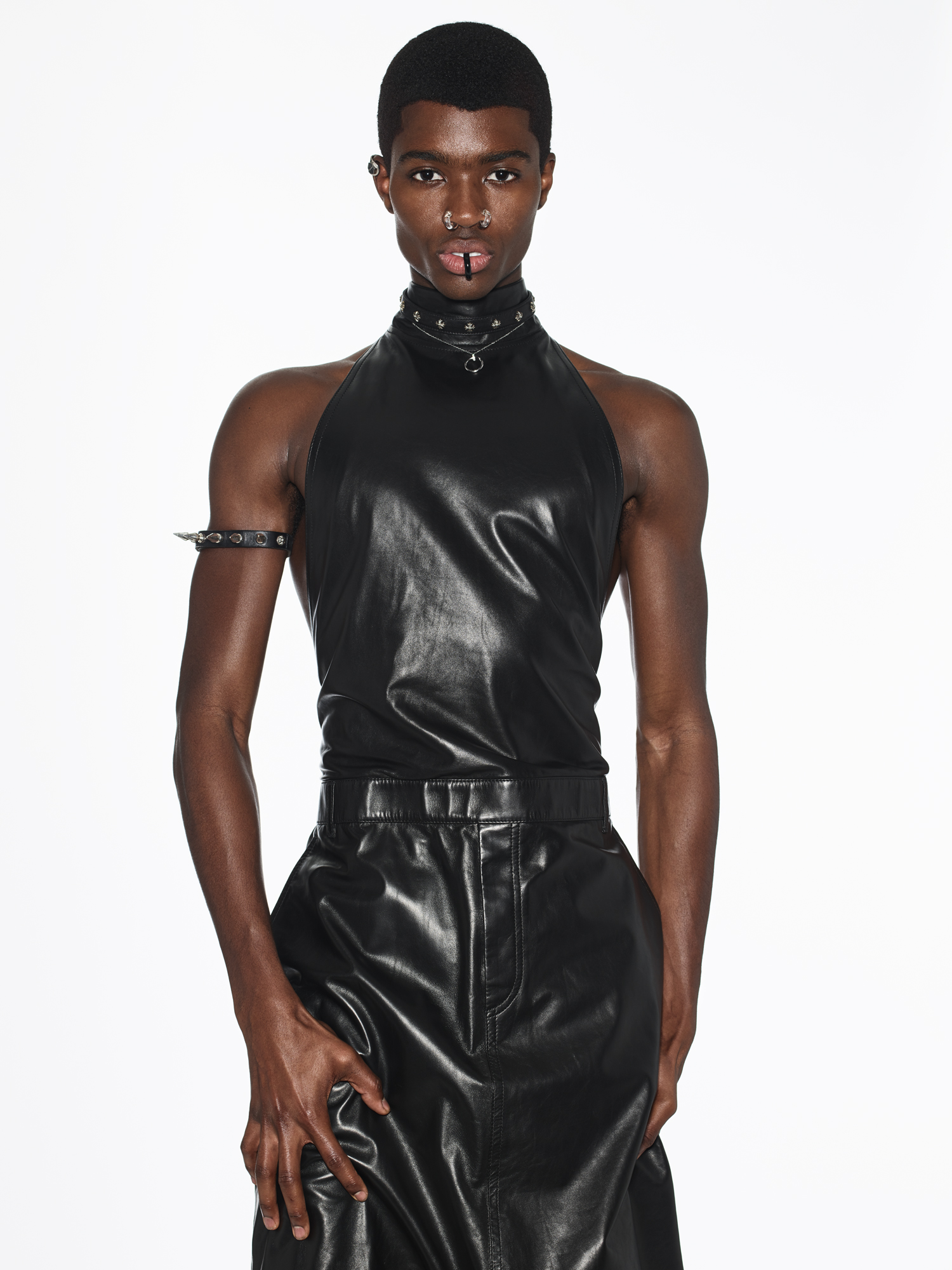
That has brought me to a place where I’m identified as a creative individual and not one particular thing. That’s really what I want to do; continue to inspire the generations to come and it doesn’t have to be dance, it doesn’t have to be gymnastics. But really being fearless and applying what you know, and what you love to what you do every day…no matter what it is. That’s what I’ve been doing so consciously and been called to do. Personally, I’ve been having so much fun doing that. I’ve been finding parts of myself that I didn’t know existed. I’ve been really unraveling, revealing layers just out of curiosity. That has been amazing for me and to be able to work with people like you, Virgil, Naomi, it’s really just…I can’t even put it in words, because I’m just a kid from the desert of Arizona. I didn’t know this was going to happen to me. I was actually on the plane reading The Alchemist for the fourth time, and I’m like, “This is me!”
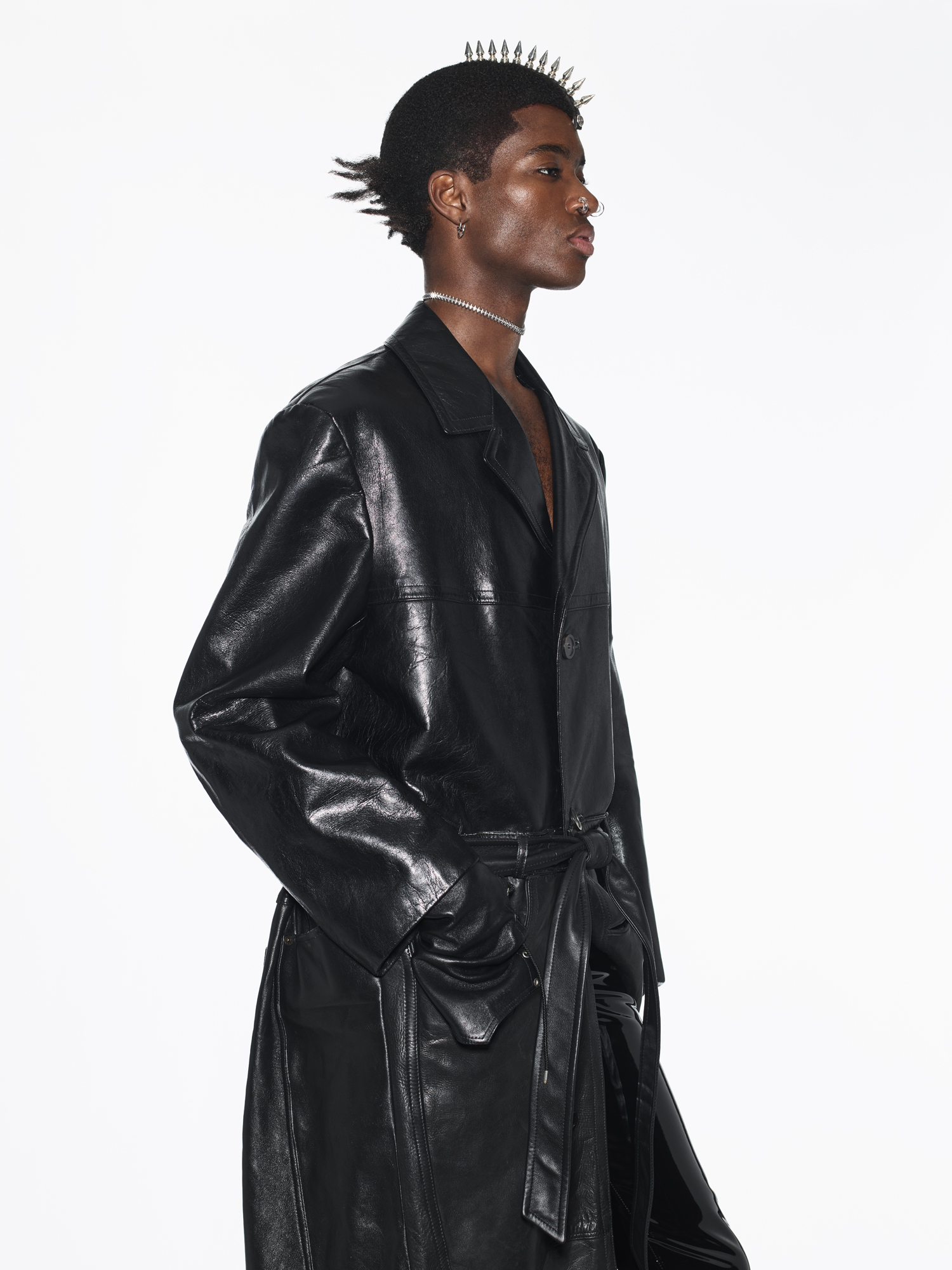
BL: Perfect story. I love what you say. And I think you’re at the perfect age and you’re the perfect crossroads for this. What I hear you say is that there shouldn’t be these silos. There shouldn’t be these fences between, I am a model, I am an actor. I sing, I do martial arts, I do gymnastics. What I hear you saying is, they’re all available. But what the constant is the desire to express and tell a story.
AM: I love that, Baz.
BL: And I saw that very much in what you’re doing. I remember seeing even before you did our film, the short film you made, it was called Rise In Light, and you did music in it. And I remember you told me that you’ve been working on music and you played me something.
AM: I can’t believe you remembered all of this.
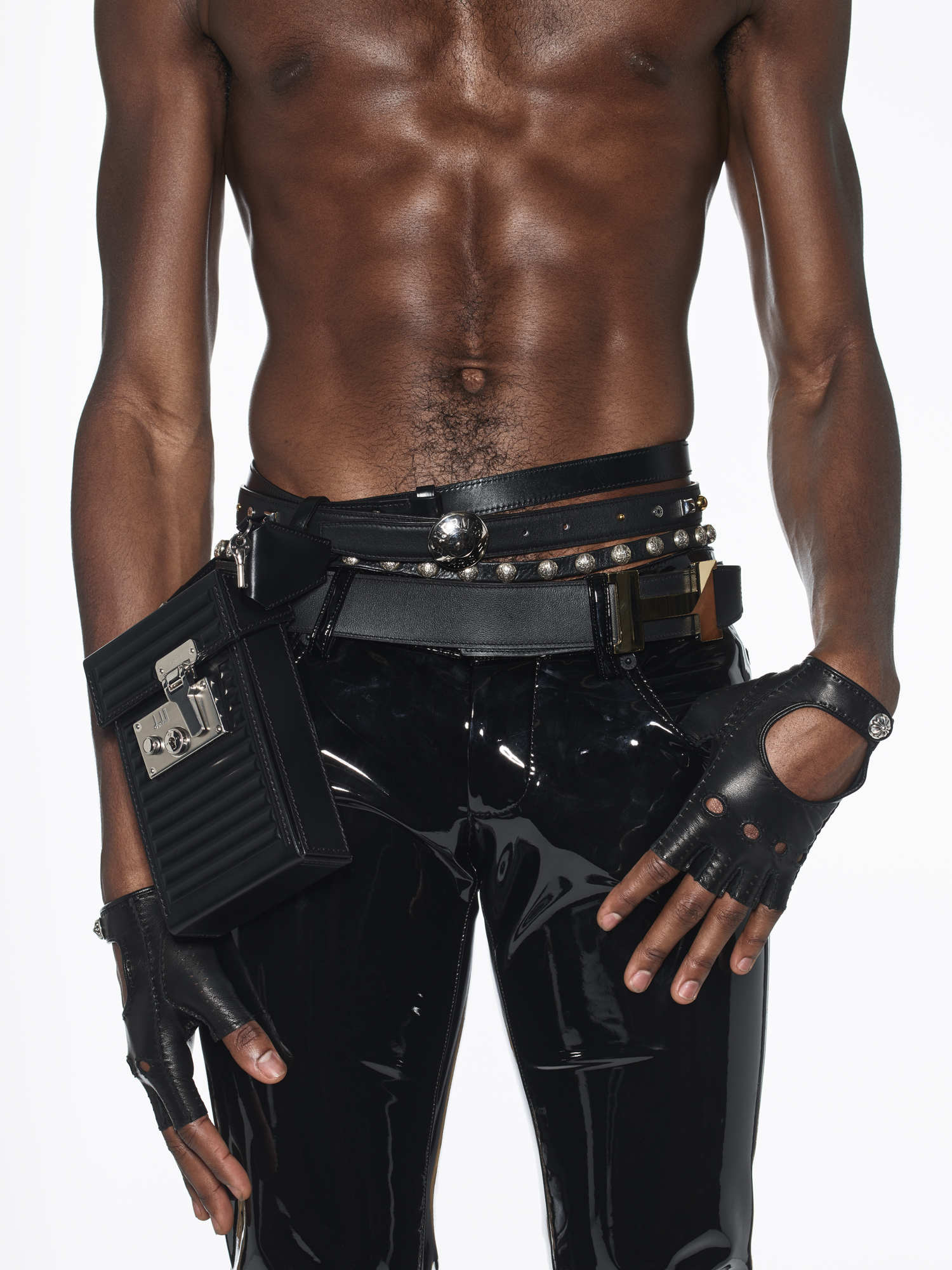
BL: Well, I mean, that’s my job, I have to remember. But I don’t remember everything. I just remember the things that touch or strike me. But it was really clear that your music was somewhat of an effortless progression from modeling, dancing, and acting.
AM: Personally, music has always been just a little passion project, like a hobby, like a form of therapy for me. Just to add a touch to what you said about expression. I want to share more of myself with the world. I do, and I will.
BL: It’s the beginning of a very long road. It’s a lifetime journey, revealing yourself. One of the great joys for me is identifying an artist. And no artist that I work with, no matter what their background is, gets to play every string on their instrument in their entire career. And so, building an environment where they can just reveal a new string is important. I think we see that in you playing Little Richard in the movie. There’s such an important scene, later in the film, where you’re hanging out with B.B. King…and all of the intensity you brought to the scene, it’s another string on your instrument. I mean, you were really present in the movie as this character. You were Little Richard.
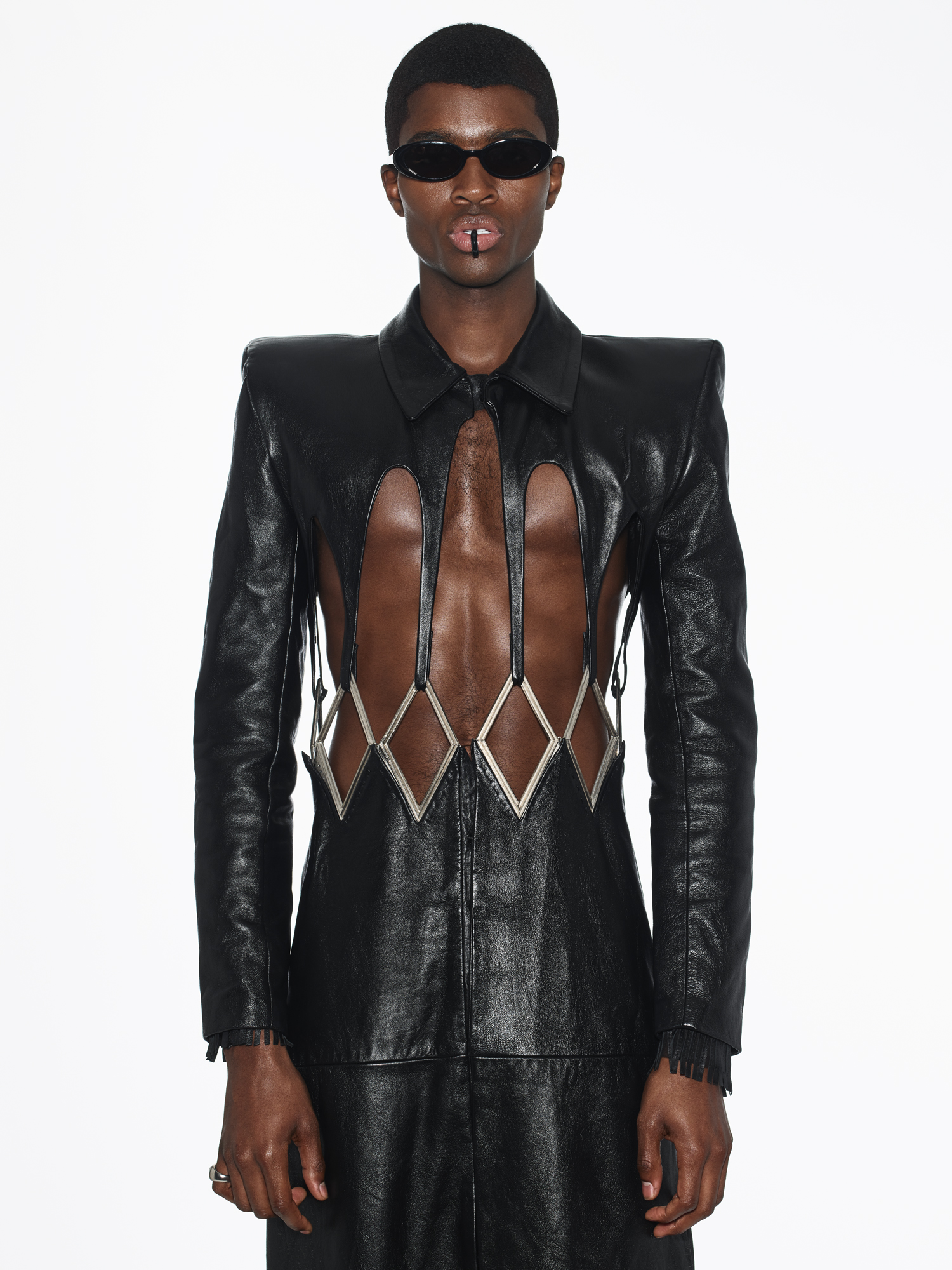
AM: Thank you so much. Thank you, Baz. That truly means the world.
BL: And I know we’re all looking forward to it. I can’t wait for the world to see you.
AM: Thank you for believing in me.
Discover More
